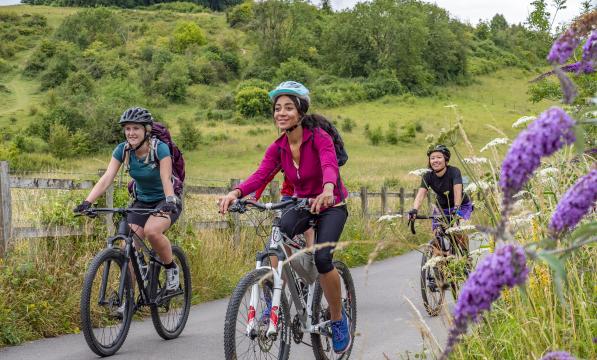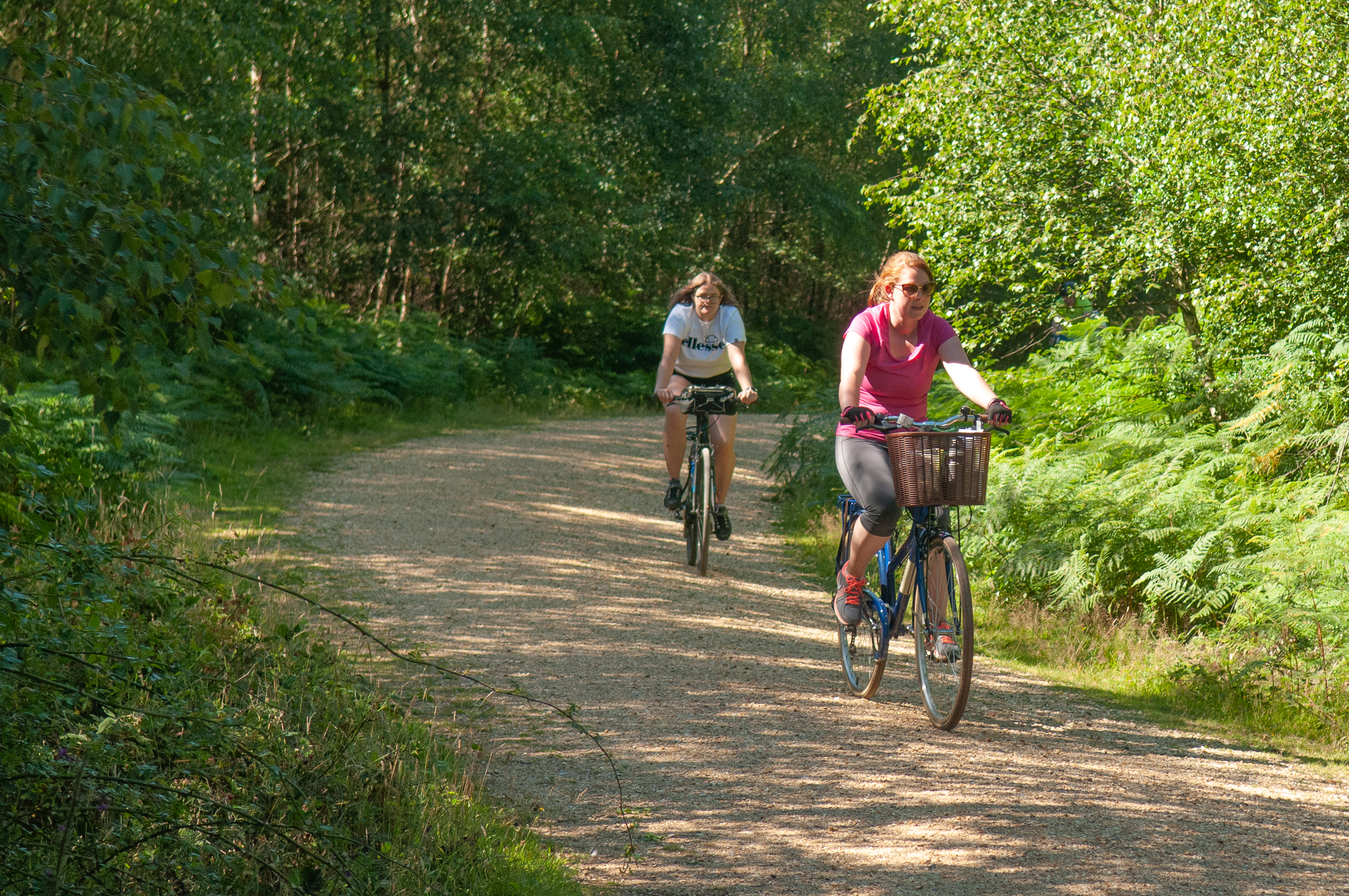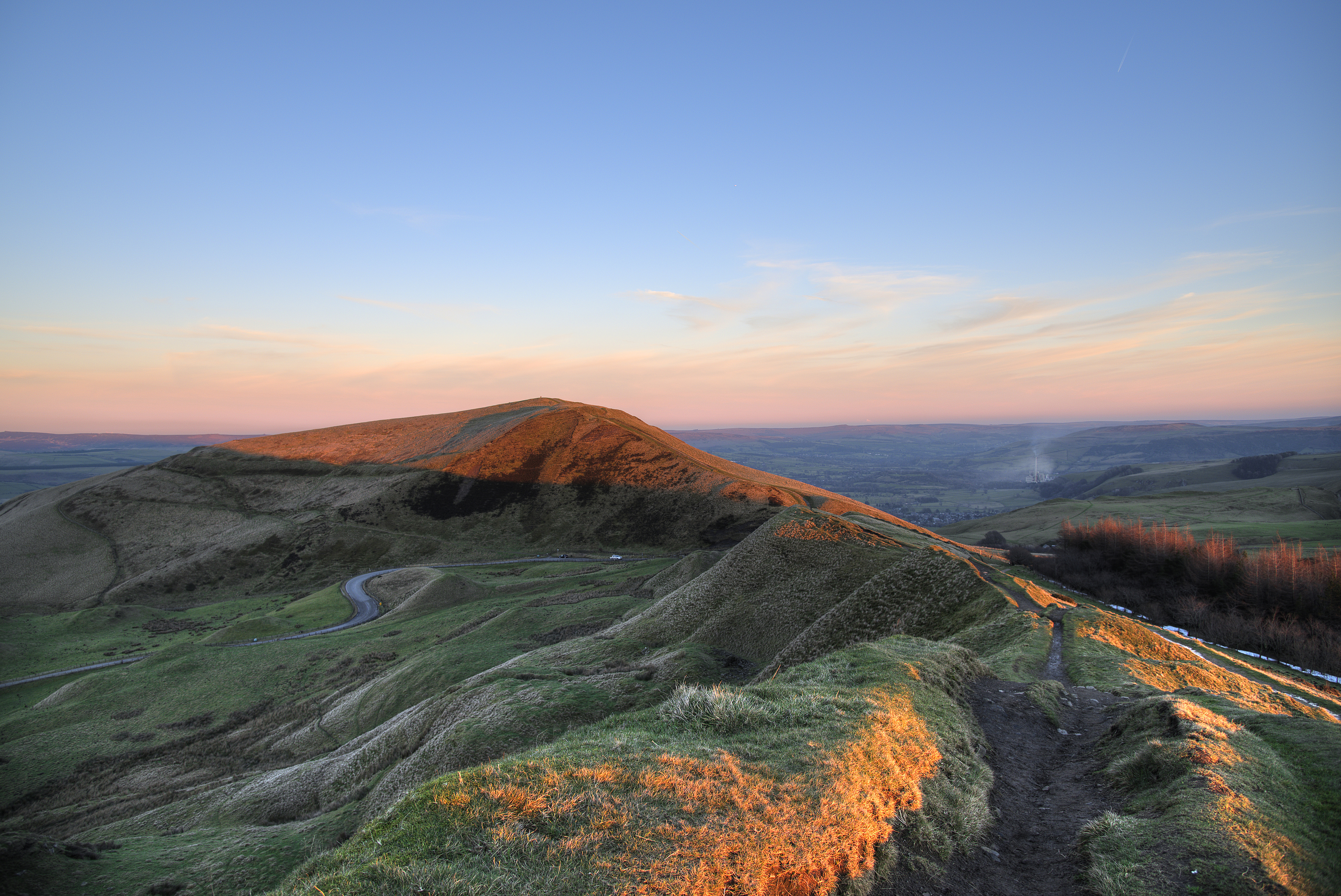National Parks review: Government response is a missed opportunity to support outdoor recreation

After over two and a half years and many delays, the UK Government has finally published its response to the Glover review of National Parks and Areas of Outstanding Natural Beauty (AONBs) in England.
The review set out a wide range of well-researched and ambitious proposals to restore and enhance nature, enable more diverse communities to enjoy these special landscapes and make them more relevant to the changing societies of the UK, while supporting local communities and economies.
Unfortunately, many of these proposals have gone unheeded, or been greeted with warm words of being ‘considered’ in the future – effectively kicked into the long grass.
There were a few interesting potential changes affecting cycling in national landscapes, which we’ve outlined below: a review of access land, a stronger purpose to support public enjoyment, and measures to provide more sustainable transport options.
While this announcement hasn’t included the kind of transformational change we had hoped for, there is still a chance to influence the changes during a consultation over the next few months.
Changes to open access
Glover review:
The review highlighted the lack of multi-user access in many places, and the inconsistency between different areas.
“Concerns were also raised about what are perceived to be restrictive laws, or restrictive interpretations of them…There is a lack of consistency between National Parks with some considered to be promoting shared and fair access, others less so.”
Proposal: Consider expanding open access rights in national landscapes.
Government response:
The good news is that the Government has accepted in principle that there is a need to review open access land. This was supposed to happen in 2019-20, but has been pushed back to 2024-25.
The response also said:
“We will also consider using the powers under the Agriculture Act and resources under the Farming in Protected Landscapes Fund to support or reward landowners for offering enhanced access to their land in some circumstances.”
Cycling UK’s view:
We think this is too long a delay. Having stated the importance of connecting a more diverse range of people with our national landscapes, it’s illogical to postpone a review of access which could make it easier for more people to explore and enjoy them.
Cycling UK will press for this to be brought forward, but even so, it’s essential that progress is made in the meantime – such as to run experimental/pilot schemes on expanding open access opportunities in order to inform that decision-making process.
Funding to reward landowners for increasing access would be welcome, and it’s what we have been calling for in the Agriculture Act, Environment Act and the new Environmental Land Management Scheme (ELMS). However, it’s hard to get excited about a statement that feels so vague and non-committal.
Strengthen purpose for public enjoyment in AONBs
Currently National Parks have two dual purposes:
- Conserve and enhance the natural beauty, wildlife and cultural heritage
- Promote opportunities for the understanding and enjoyment of the special qualities of national parks by the public
AONBs have one purpose: to conserve and enhance natural beauty.
Glover review:
“The second purpose of our National Parks to “promote understanding and enjoyment of its special qualities by the public” is too passive, and – in part because of this – it seems to be the thing that they get to when all the other work has been done. It has felt, overall, discretionary, passive and ad hoc. And, though all do it anyway, AONBs don’t even have this purpose.”
Proposal: A stronger mission to connect all people with our national landscapes.
Government response:
There is an intention to strengthen both purposes – to focus on actively recovering and restoring nature rather than conserving what exists, and on improving and supporting access instead of just promoting opportunities.
The second purpose should highlight the need to improve opportunities and remove barriers to access for all parts of society, and it should apply to AONBs as well as to National Parks.
Cycling UK’s view:
This is quite exciting. It could be a significant change for public access being given greater priority and resources, particularly in AONBs.
Sustainable transport
Glover review:
“Car dependency and public transport pressures present huge challenges for our national landscapes… As part of an increased strategic role in transport, national landscapes should encourage ‘total transport’ schemes, which integrate a wide range of government spending on transport into frequent systems open to a range of users.”
Proposal: A new approach to coordinating public transport piloted in the Lake District, and new, more sustainable ways of accessing national landscapes.
Government response:
Support for pilot projects in the Lake District which “may transform public transport in the area and become a blueprint for other protected landscapes”.
Cycling UK view:
Reducing congestion and car dependency in national landscapes is hugely important for making cycling feel safer and more enjoyable. National Parks and AONBs are fantastic places for cycling, but too often routes can be cut off by fast and busy roads, which is a barrier for less confident cyclists. Improving alternative transport options and cycling connections into and within national landscapes is also essential in light of findings by CPRE that England's National Parks and AONBs are out of reach for a third of people.
Innovative initiatives in the Lake District, such as e-bike hire schemes, need to be rapidly replicated in other places once their success has been proven.
More diverse governance?
Glover review:
One of the difficulties with making national landscapes more accessible and welcoming to more ethnically and socioeconomically diverse communities is that governing boards are “deeply unrepresentative of England’s diverse communities. Of the almost 1,000 people on National Park and AONB boards today, the great majority are male, many are of retirement age and a tiny fraction are of black, Asian or minority ethnicities. This is wrong for organisations which are funded by the nation to serve everyone”.
Government response:
The response didn’t make many commitments on this topic.
“We have begun to address this through improvements to the Secretary of State public appointments process. This has significantly increased the proportion of candidates who are female and/or from an ethnic minority background. There is still more to do, and we will continue to embed diversity, equity, and inclusion best practices into our public appointments.”
Cycling UK view:
Given the weight of importance that the review gave to ensuring that national landscapes become truly places for everyone, and that their governance structures need to reflect that, it is hugely disappointing that the Government has ducked this opportunity for radical reform.
We are concerned that this can only result in the further embedding of the existing problems of lack of representation and exclusion of diverse communities from the parks.
What’s next?
After such a long wait, the Government’s response to the Glover review has unfortunately not lived up to expectations. It feels like a missed opportunity to show real leadership and transform the way that people in England experience and engage with nature in our most precious landscapes.
However, it’s not the end of the story – there will now be a consultation on the potential changes, which we can use to push the Government to be bold and go further.









